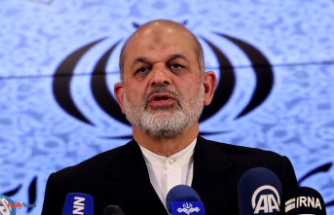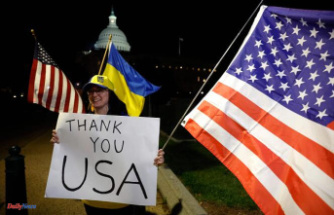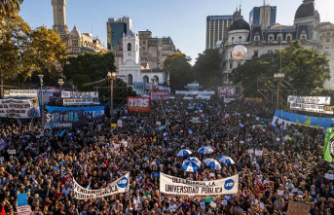. Budget: how high will the bill go?
Inflation weighs on the budget of 4 billion euros of the organizing committee of the Paris Olympic Games (Cojo) and on that of Solideo, responsible for building permanent structures (4 billion, including 1.55 of public money ).
On the side of the Cojo, no figures filter on the amount of savings to be made. After the 300 million euros released at the end of 2020, how much will it be necessary to find? All the markets have not yet passed and all the sponsors - the luxury giant LVMH is eagerly awaited after the arrival of Carrefour - have not yet been garnered.
“They are very stretched in terms of budget”, confides to AFP a source close to the file, to fit in their envelope (ticketing, sponsorship, contribution from the IOC). "The truth of prices" will fall in the fall, say several actors, for a budget review scheduled for the end of the year.
On the Solideo side, inflation will have to be paid for by someone, probably by the State, which tops up its envelope each year in the Sports budget.
The economic context, which promises to be difficult, will make the absence of waste even more essential, otherwise the Olympic Games will lose public opinion.
. Security: find the missing agents
The opening ceremony of the Olympic Games on the Seine gives the police services cold sweats. Should it be reduced? For now, the Cojo does not want to change anything. But we will also have to ensure the security of the Olympic and Paralympic Games for two summer months. Some of the events will take place in the center of Paris, Place de la Concorde, very close to the Élysée, near the Eiffel Tower or even at the Château de Versailles.
It will be necessary to have the public forces available – with financing no doubt – and above all to find the 20,000 private agents necessary while the sector has been on its knees since the health crisis.
. Transport: avoid embolism on the ring road and at the exit of the RER
To manage the approximately ten million spectators expected, the question of transport is essential, especially since certain metro lines (16 and 17) which were to serve Seine-Saint-Denis will not be ready in time.
A report on the transport and service system must be submitted to the Prime Minister at the start of the school year, in light of the incidents in the Champions League final at the Stade de France, which highlighted access problems.
In addition to the classic public transport network, as in any Olympic edition, it will also be necessary to charter additional buses, and suddenly find drivers when the profession is short of arms. For the hosting of the Paralympic Games, there is also considerable progress to be made in terms of accessibility.
The decree defining the "Olympic lanes", that is to say traffic lanes reserved from July 1 to September 15 for athletes, officials, the media, emergency services was published in May.
. Doping: it's urgent!
Several sources from the world of anti-doping told AFP that the Cojo was "very late" in setting up the organization of anti-doping during the Olympics, so even that "the IOC worry".
If it is the International Testing Agency (ITA) which will officiate during the Olympic Games, it is up to the Cojo to plan the logistics and to ensure that it can intervene and work correctly. The AFLD (French anti-doping agency) should recover the mission.
. Make the French "move"
To make the French "move" while a sedentary lifestyle is wreaking havoc among adults and children: the public health objective shared between the State and the Olympics has so far resulted in the initiative, launched by the Cojo, to set up 30 minutes of physical activity in primary school. Its generalization has become one of the measures of President Emmanuel Macron's program.
The objective of three million additional practitioners displayed in 2017 after obtaining the Olympics will be difficult to achieve, also undermined by the health crisis.












